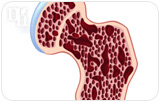
Declining estrogen levels are the primary trigger of menopausal symptoms like hot flashes, night sweats, and mood swings. That's why so many women turn to hormone replacement therapy (HRT), medications containing estrogen and other hormones that the body stops producing after menopause.
With recent studies linking HRT to numerous health risks, understanding what you are getting into when you enter this treatment will help you to make more informed decisions about relieving some of your more unpleasant menopausal symptoms. Keep reading to learn more about HRT and how it affects your body during menopause.
Hormone Replacement Therapy: How Does it Work?
Women undergoing HRT typically take medications containing estrogen and progestin, a synthetic version of progesterone. Throughout menopause, your doctor will likely prescribe doses that seek to balance your hormones at their normal levels, offsetting the symptoms of menopause. Maintaining a balance of estrogen, in particular, can relieve menopausal symptoms like:

- Hot flashes
- Mood swings
- Irregular periods
- Irritability
- Vaginal dryness
Studies have also linked short-term HRT to a decreased risk of osteoporosis, colorectal cancer, and heart disease. This does not apply, however, to long-term postmenopausal treatment, which is no longer recommended by most medical professionals.
What Are the Risks of HRT?
Though synthetic hormone therapy has measurable benefits in the treatment of menopausal symptoms, it does come with its risks. For many women, these outweigh the treatment's advantages. Some research, including a landmark study in 2002, has linked HRT to an increased risk of heart disease, breast cancer, stroke, and blood clots.
What Are the Alternatives?
Fortunately, HRT isn't the only option for women seeking menopausal relief. There are plenty of natural remedies and lifestyle changes that can bring many of the same benefits, without the potentially dangerous side effects.

A healthy body produces healthy levels of hormones. So improving your diet and exercising more may relieve many of your symptoms without the need for costly medications. However, if you're still suffering despite these efforts, you may want to consider herbal supplements containing phytoestrogens.
These plant compounds are thought to mimic estrogen in the body, relieving menopausal symptoms; although, they may also come with many of the same side effects as HRT. Hormone-regulating herbal supplements like Macafem are another option. These supplements boost your body's hormonal production naturally, free from the symptoms of HRT or phytoestrogenic supplements.
Click on the link below to learn more about hormone replacement therapy.
